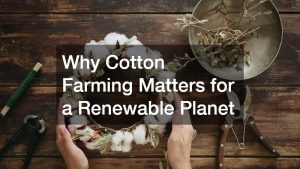These days, at least one billion people deal with water shortage in their everyday lives. That goes hand in hand with poor sanitation and inadequate waste disposal. A leading waste management company in Australia details that in this pursuit for safe water, poor communities suffer the most. However, with the right wastewater management procedures and certified filtration systems, sustainable water security is achievable.
Freshwater. Is it enough?
Freshwater is a product of a favourable climate. When climate change arises, you have minimal fresh water available for everyone. You see the effects of this by expanding deserts, flash floods, and droughts. Also, when you have cities grow, there are limited sources of water.
What to Do
Freshwater needs regulating so that there is enough water for everyone. Yes, that right there is quite a long stretch, but meeting the demands for policy measures is what exactly such strategies call for. Also, it will require all stakeholders in the wastewater and water treatment industry to hold partnerships with the government to help track this resource.
Refocusing on Water Scarcity
Nations can suffer instability when there is less water. Therefore, monitoring the supply and demand should be the priority to help guarantee water security in Australia. In most places in the world, groundwater quantities are more than those on the surface. Thus, focusing on drilling for underground water makes sense. Political leaders need to be at the forefront of such projects in Australia, as abundant water means more investments and economic growth.
Saving Water
Piped water needs monitoring for leakages, as they do not raise any revenue for the government. Measures to curb this are possible through using monitoring technology. You also can manage water consumption by using modern water meters and public awareness.
Recycling Wastewater

More than 50% of wastewater ends up in the ground, rivers, and oceans. This has ecologically severe implications, thus requiring reviewing. Sewage is a new opportunity for the government to generate new energy. Phosphorus elements are also present in wastewater, and they can make agricultural fertiliser. You also can use filtration systems to recycle wastewater for flushing toilets and watering crops.
Curbing Water Competition
Besides food and energy, water is in high demand globally, which places a need for businesses and governments to check the water supply. Australia, too, must plan and balance its water supply, and this should work with the demand to guarantee a brighter future for citizens. The nation of Australia has made great strides in fostering partnerships, especially between the government and the private sector, in managing water resources.
In the end, more citizens are aware of how best to save on available water reserves. Clearly, water is imperative for the prosperity of any nation. It makes sense for Australia’s citizens to also place a premium on it. Managing freshwater and wastewater guarantees savings and helps improve water reserves in the nation. People around the world should learn to appreciate the value of water, which is essential to everyone’s survival. By conserving water, people can improve their quality of life.







